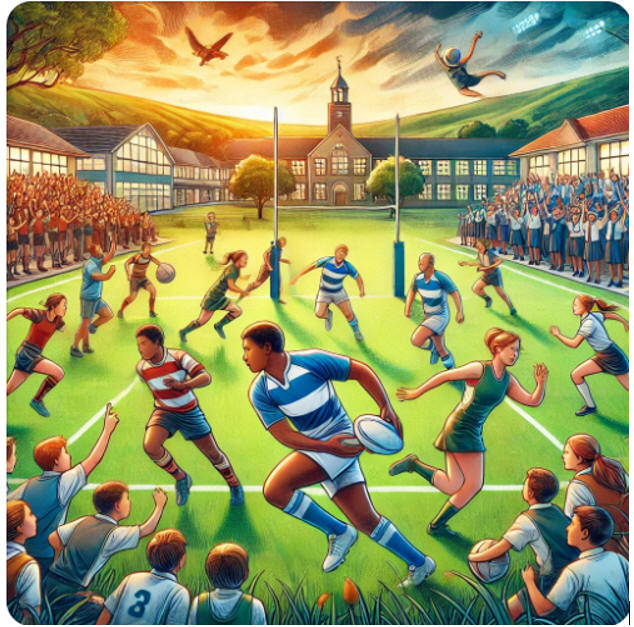|

Sport in schools often
draws attention for its marketing value, as successful
teams and talented players frequently put schools in the
spotlight. However, beyond the accolades and trophies,
sport plays a vital role in the holistic development of
learners, fostering growth in ways that academics alone
cannot achieve.
Physical and Mental
Development
Engaging in sport keeps
learners active and healthy, improving their physical
fitness and overall well-being. Regular physical
activity boosts cognitive function, which positively
impacts academic performance. Moreover, sport helps to
manage stress and anxiety, offering a healthy outlet for
emotions and teaching learners resilience in the face of
challenges.
Character Building
Sport instills essential
life skills such as teamwork, discipline, perseverance,
and time management. It cultivates leadership qualities
and the ability to work collaboratively toward a common
goal. These traits not only prepare learners for success
in sport but also in life beyond the classroom.
A Platform for All Learners
to Shine
For learners who may not
excel academically, sport offers an opportunity to
discover and showcase their talents. This helps build
their confidence and self-worth, encouraging them to
participate actively in school life. It also teaches the
value of hard work and determination, showing them that
success comes in many forms.
Strengthening Relationships
and Communication
Sports provide an excellent
platform for teachers and learners to interact outside
the confines of the classroom. When teachers coach or
support learners in sporting activities, it fosters a
sense of trust and approachability. These connections
often translate to improved communication and mutual
respect in academic settings, making it easier to
inspire and guide learners.
Building a Sense of
Community
Participation in sport
fosters camaraderie among learners and encourages a
sense of school pride. Spectators, whether parents,
peers, or teachers, unite in their support, creating a
vibrant and inclusive school community. This collective
spirit often leaves a lasting impact, instilling values
of teamwork and belonging.
A Balanced Perspective
While the importance of
sport cannot be overstated, it is crucial to strike a
balance. Schools should ensure that the emphasis on
sporting achievements does not overshadow academic goals
or alienate learners who are less inclined toward
sports. Inclusivity and accessibility should remain at
the heart of school sport programmes.
Final Thoughts
Sport is far more than a
competitive activity; it is an essential component of
education that nurtures well-rounded individuals. As
teachers, coaches, and mentors, we have the privilege
and responsibility to guide learners in realising their
potential both on and off the field. By fostering a
balanced, inclusive approach to sport, we equip learners
with skills and values that will serve them throughout
their lives.
As Nelson Mandela famously
said: "Sport has the power to change the world. It
has the power to inspire. It has the power to unite
people in a way that little else does." Let us
harness this power to empower our learners to thrive in
every arena of life. |